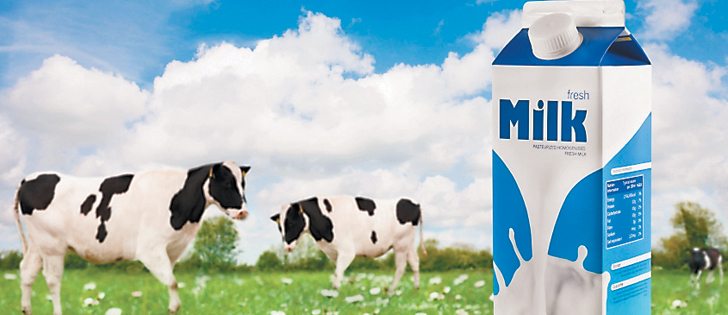Milk, despite its good qualities, doesn’t rank high when it comes to sex appeal.
It’s hard for a plastic jug filled with a white liquid to compete with more desirable drinks like raspberry-infused lemonade or coconut-almond milk.
Milk continues to be a grocery store staple, but Canada’s dairy industry must respond to young consumers, who have become apathetic about milk, said Victoria Cruz, director of marketing and retail at Dairy Farmers of Canada.
“They (Canadians) are telling us milk is boring,” said Cruz, who spoke at a Dairy Farmers of Manitoba meeting in early December. “They’ve been consuming milk since they were kids. So there is nothing inspirational or exciting for them in drinking milk.”
Read Also

VIDEO: Agritechnica Day 4: Robots and more robots, Nexat loves Canada and the trouble with tariffs
Agritechnica Day 4: Robots and more robots, Nexat loves Canada and the trouble with tariffs.
Market intelligence shows that a key and much talked about demographic age group, millennials, are turning their collective backs to milk.
“And there is a lot of excitement coming from other drinks, like soya beverage, all these alternative drinks,” Cruz said. “And millennials love those because they are different.”
It isn’t part of Cruz’s marketing strategy, but new specialty products might make milk more attractive, particularly to consumers who want to stand out from their neighbours.
Two companies in Quebec are now selling non-genetically modified verified milk or milk from cows fed non-GM feed.
Bothwell Cheese, a Manitoba company, plans to launch a non-GM verified cheese in 2017.
Manitoba dairy farmers will supply the necessary milk so Bothwell can make non-GM verified cheese.
But if enough dairy farmers want to feed their cows non-GM grains and oilseeds, the milk could potentially be sold as non-GM verified.
“That’s our main goal, to get cheese going,” said Kevin Thomson, Bothwell Cheese president.
“(But) we’re definitely going to look at other avenues, as far as expanding on other product lines, whether it was for milk or other products.”
David Wiens, Dairy Farmers of Manitoba chair, said a non-GM verified product might attract consumers who have abandoned milk.
“In the market environment we’re in today, consumers want selection,” he said. “I don’t see this (non-GM verified) as displacing our conventional market. There may be people (that) this is what draws them into buying dairy…. I believe the more interest there is in the (dairy) category, is going to help lift the overall category.”
Another possibility is milk from grass-fed cows.
A group has asked Dairy Farmers of Manitoba to consider it, Wiens said.
“We will try to accommodate that as well.”
Specialty milks may be part of the solution, but Cruz is focused on other ways to build the buzz around milk.
Cruz, who lives in Montreal but is from Spain, said dairy processors in her native country are experimenting with unique packages, flavours and size formats.
One example of innovative packaging comes from Japan.
Hi!Milk, a new product of Mengniu group, won a World Design Award for a carton of milk that looks like a Holstein cow, including flaps for ears.
Such creativity could restore passion for milk because the dairy industry has a natural advantage over milk substitutes, Cruz said.
“Those other drinks don’t have the same nutritional values as cow milk.”
















